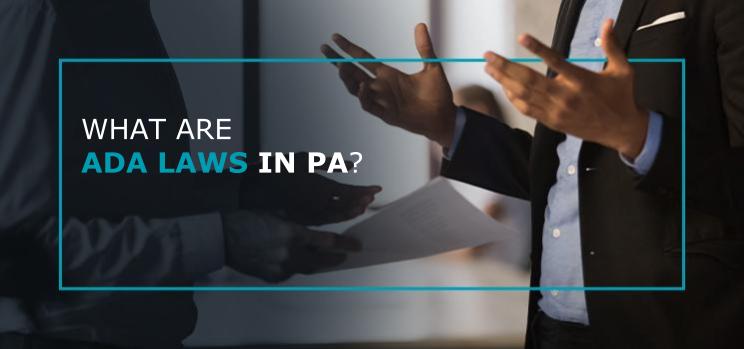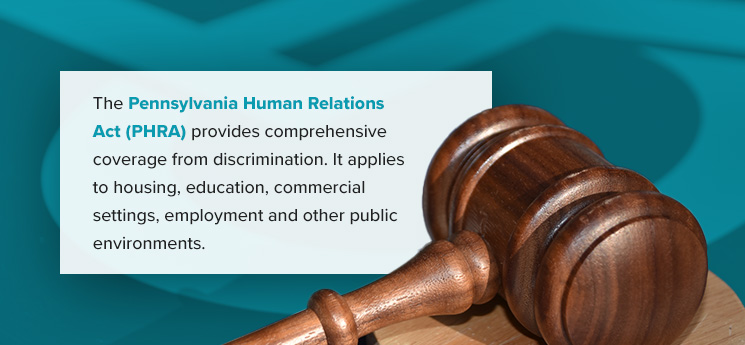Individuals considering an ADA violation case might have many factors to consider and understand. When you understand if you qualify for this type of lawsuit, you can better support and fight for your needs.
What Is the ADA?
The Americans with Disabilities Act (ADA) is national legislation that protects the rights and standard of living for individuals with disabilities. It covers all areas of public life, including:
- Schools
- Transportation
- Work
- Public spaces, like restaurants and grocery stores
Individuals in these spaces have accessibility and accommodation rights. The ADA also requires these areas to meet accessibility requirements, like ramps and accessible parking spaces around their facilities. The ADA also allows individuals to be accompanied by service animals in many locations, even in spaces that do not allow other pets.
Types of ADA Regulations
The ADA consists of five titles to distribute enforcement and regulations in various settings. These titles simplify ADA rights and protections so individuals understand what services and accommodations are available to them in various settings and circumstances. The different ADA titles help individuals understand where ADA violations might occur and qualify as, helping streamline legal actions and next steps.
Those five titles include:
Title I
Title I protects equal employment opportunity. Under these regulations, employers cannot withhold employment opportunities or benefits from individuals with disabilities. Employers must also provide individuals with reasonable accommodations. The ADA defines a reasonable accommodation as a change or adjustment to the job tasks or environment that will allow individuals to complete essential position tasks and applications.
All employers with 15 or more employees must comply with Title I. The U.S. Equal Employment Opportunity Commission enforces and regulates this title.
Title II
Title II protects individuals with disabilities from discrimination in state and local government programs, services and activities. For example, this title covers public and intercity transportation, like AMTRAK, outlining standards for accessibility and assistance for optimized functionality and use. Organizations and institutions have evaluations and planning requirements they must follow to meet Title II regulations.
The regulating authorities for Title II include both the U.S. Department of Justice (DOJ) and the U.S. Department of Transportation (DOT).
Title III
Title III protects individuals with disabilities against discrimination in public and commercial settings. The ADA provides 12 categories for these public spaces, which include public transportation terminals, restaurants, doctor’s offices, schools and movie theaters. It requires these spaces to make reasonable accommodations and communication efforts when serving individuals with disabilities. Like Title II, the DOJ and DOT regulate and enforce this title.
Title IV
Title IV focuses on telecommunications and ensuring telephone, Internet and television services are accessible and inclusive. Regulations and standards under this title provide services for telephone communication for individuals with speech and hearing disabilities and closed captioning on TV programs and movies. The Federal Communication Commission (FCC) regulates and enforces this title.
Title V
Title V of the ADA consists of additional provisions to provide a more comprehensive picture of the ADA and to provide additional rights and protections to persons with disabilities.
ADA Law in PA
The ADA works alongside other anti-discrimination and civil rights legislation in Pennsylvania to protect individual rights and quality of life. The Pennsylvania Human Relations Commission (PHRC) regulates and enforces these state laws.
The Pennsylvania Human Relations Act (PHRA) provides comprehensive coverage from discrimination. It applies to housing, education, commercial settings, employment and other public environments. Pennsylvania Fair Educational Opportunities Act (PFEOA) applies to postsecondary education, secondary vocational and trade schools.
PHRA defines accessibility within the standards set by the ADA, providing individuals with disabilities comprehensive protection and accommodations. It also requires the state to comply with the Fair Housing Act (FHA), federal legislation which prohibits discrimination when seeking to purchase or rent housing or secure a mortgage.
Do You Have an ADA Violation Case?
ADA violation and discrimination can take many forms. Understanding the common violations individuals with disabilities experience can help you determine if you have a case against an organization or institution. Some common violations include failing to meet or include:
- Ramps and accessibility aids: Individuals who use wheelchairs or other mobility aids require ramps and associated accessories to access facilities and navigate spaces with elevation changes, like curbs. Spaces that fail to meet ramp standards, like slope, or include accessories like handrails can qualify as a violation.
- Parking spot requirements: The ADA outlines specific requirements for parking lots. These spaces ensure individuals with disabilities can better access various public and commercial facilities. Businesses and organizations must provide a certain number of these parking spots, and a portion of those must accommodate wheelchair users with extra space on the sides. Proper signage and paint marking must distinguish these parking spaces from others.
- Door standards: Another aspect of accessibility for public and commercial spaces includes doors. Without meeting proper door accessibility standards, individuals might lack the means to enter businesses and properties. Entrances should have doors wide enough to accommodate various mobility aids, like wheelchairs. Automatic openers and buttons enable individuals to open doors without holding them open themselves. Other requirements include signage and handle types.
- Restrooms: For restrooms to meet ADA accessibility standards, they must have the right dimensions and fixtures. Wider stalls allow individuals to navigate spaces with mobility aids or caregivers. Bars and wall fixtures help individuals move safely around spaces and access all amenities in restrooms.
- Braille signage: Locations require correct Braille signage to translate other written and visual information, like directories and room numbers. Without correct and accurate signs, individuals with vision impairments will have a more challenging time navigating spaces.
Gaining a comprehensive knowledge of ADA violations can help you seek action to ensure enforcement and regulation across industries and spaces.
Types of Employment Violations
While understanding general and common ADA violations is helpful, ADA violations can occur in any environment, including the workplace. Knowing common employment ADA violations can protect individuals against discrimination and preserve their rights. Some common violations include:
- Hiring discrimination: Organizations cannot refuse to hire someone because they have a disability. Candidates have the right to fair application consideration based on other qualifying attributes and the ability to perform with the right accommodations.
- Failing to accommodate: Individuals with disabilities reserve the right to receive reasonable accommodations in the workplace. When employers refuse to provide such accommodations, employees can pursue legal action.
- Reducing tasks: Discrimination can also take the form of marginalization. Employers might make assumptions about abilities based on disabilities, giving individuals fewer tasks and easier workloads. This practice can isolate employees with disabilities and perpetuate stereotypes.
- Receiving retaliation and wrongful discharge: An individual may experience discrimination due to their opposition to or complaints regarding ADA violations. If an employer retaliates against an employee after they complain about not receiving reasonable accommodations, it may be an ADA violation.
Protecting your rights in the workforce is essential for creating a safe and healthy work environment. Your employer should support your needs and work with you to establish systems and resources for you to thrive.
Protect Your ADA Rights With Weisberg Cummings
When you feel you might have experienced an ADA workplace violation, seeking legal assistance can help determine your next actions. You might have a case against your employer, allowing you to receive compensation and assistance for your job and work environment. At Weisberg Cummings, we specialize in employment law, so we can assist individuals with disabilities in proving ADA violations and pursuing ADA violation lawsuits.
Contact us today to schedule a consultation and discover how Weisberg Cummings can assist you with workplace ADA violation and discrimination cases.



